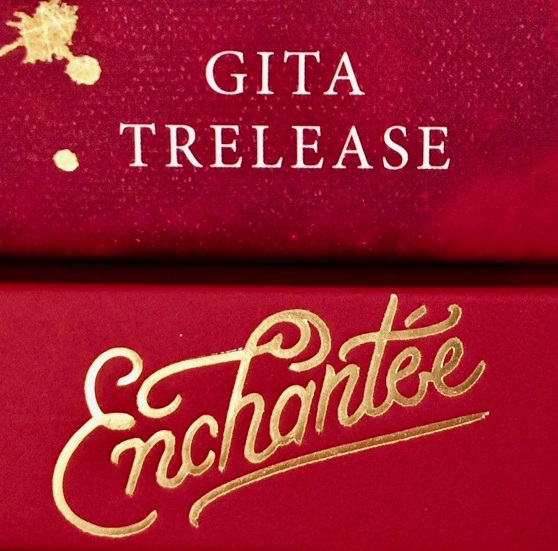Enchantée Book Club Guide
Camille uses magic to save herself and her sister from starvation and to achieve physical and financial security. Yet the magic exacts a great cost. Does she do the right thing by using it?
Enchantée is set both in Paris and at the Palace of Versailles, and as a writer, I wanted to make these places characters in their own right. How do these settings help Camille, and how do they challenge her in her journey?
Camille goes to court hating the aristocrats, but over time her feelings change. What did you think of the portrayal of the aristocrats in the novel? Should Camille have been more careful? What do you think led to her misunderstanding about the dangers at court?
Sophie has a romantic—and conventional, for the time period—understanding of what her journey in life should be: marriage to a wealthy man. Camille doesn’t agree that this is the path her sister should take. What do you make of this conflict between the sisters? Who was in the right? What did you think of their relationship?
In Enchantée, magic is worked from sorrow—unless you can figure out a way to avoid it. It was important to me that magic in the story have a cost, and that the cost would be something a poor girl like Camille could “pay.” What do you think of sorrow being the basis for the magic? Do you see it playing out thematically in any of the other aspects of the story? How do you think of your own sorrow? Does it have a use or is it something you’d rather get rid of?
Is there a danger to a magic that “perfects” people and objects?
There are several magicians in this story. What do you think about their different approaches to magic? Do you feel they are justified in what they do?
Lazare, like Camille, keeps secrets for much of the story. Should he have told Camille earlier who he was? Why do you think he didn’t? What holds Camille back from telling him the truth about herself?
How does the title Enchantée relate to what happens in the story? (Is the title at all ironic?)
Camille tends to be a bit reckless—I very much didn’t want to write a perfect protagonist but rather, one who felt real (and a bit like myself when I was her age). Which are her worst decisions? Why, do you think, does she make them? What would you have done in her place?
Once I learned about the hot-air balloon craze of the 1780s—very early on in the research process—I knew I needed to include it in Enchantée. Why do you think I felt compelled to do that? What does the inclusion of hot-air ballooning do for the story? What is it about Lazare and the balloon that makes Camille feel so free?
I was drawn to set my story in Paris in 1789 because it was a difficult time. It was a world in which those who had everything were, for the most part, willfully ignorant of those who had nothing; the aristocrats’ beautiful but decadent way of life paved the way for their eventual demise. Do you feel there are parallels to our own time?
On My research process
I lived in Paris after I graduated from college, in a seventh-floor walkup apartment very close to where Camille lives in Enchantée. Wandering the city and visiting Versailles during that time left an indelible imprint on me as I fell in love with Paris. Antonia Fraser’s biography, Marie Antoinette: The Journey and Christopher Hibbert’s The Days of the French Revolution, which is history but reads like a novel, made me fall in love with the time period. Another source of inspiration was the historical fantasy, Jonathan Strange and Mr. Norell by Susanna Clarke, which perfectly recreates an early nineteenth-century Britain and then weaves in fully developed magic. And finally, as I’m a very visual person, I drew inspiration from films and television series: Sofia Coppola’s Marie Antoinette; The Duchess; Farewell, My Queen; and the BBC series, Harlots.
